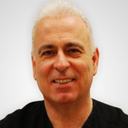The short answer is yes. Doctors who have taken the time to study and many different aspects of surgical and non-surgical hair transplant surgery are obviously going to be far more skilled than a physician who decided to buy an FUE device and go to a weekend course. It's the highest level of distinction a hair restoration surgeon can achieve, and it's not easy. Physicians who pass the board exam are Board Certified by the American Board of Hair Restoration Surgery. Currently about 200 doctors world-wide are certified, and there are 88 in the USA. It costs about $1000 for the application to take the test, which is consistent for the fees charged in other specialties. The test is 8 hours long. The first portion consists of a 4-hour written exam that’s 81 pages long (I took the text last October...it was a massive test with hundreds of multiple choice questions, including clinical scenarios, and patient photographs.) In addition to the written exam, there is an oral-exam portion of the exam, which is 4 hours in length. In this portion, which is usually held in a large hotel with meeting rooms, there are tables set up in large rooms, with 3 chairs on 1 side, and 1 chair on the opposite side. The board exam candidate spends 30 minutes in each room, moving from room-to-room as the different modules are completed. Each module consists of a 30 minute block where the candidate sits in the lone seat on one side of a large table, and 3 doctors who have already passed the ABHRS exam are on the other side of the table. The candidate is presented with various clinical questions and problems, including photographs, and is tested by the 3 doctors on the other side of the table. It’s a serious undertaking, and takes 8 hours in total. It took a great deal of effort to successfully prepare to take and pass that exam. Many experienced doctors, including some who have answered this question, are not willing to put in the effort to study that hard to earn the ABHRS achievement and get board certified. These doctors often downplay the significance of the ABHRS, but in reality it is the world’s ONLY certifying board in the specialty of hair restoration surgery. Doctors who earn a board certificate in Hair Restoration Surgery often add “ABHRS” to their formal title to signify the accomplishment. At all the international education meetings around the world about hair restoration surgery, doctors who hold an ABHRS certificate are even given special tags for their meeting credentials badge to let others know that they are board certified; it’s that important.Kind Regards,


